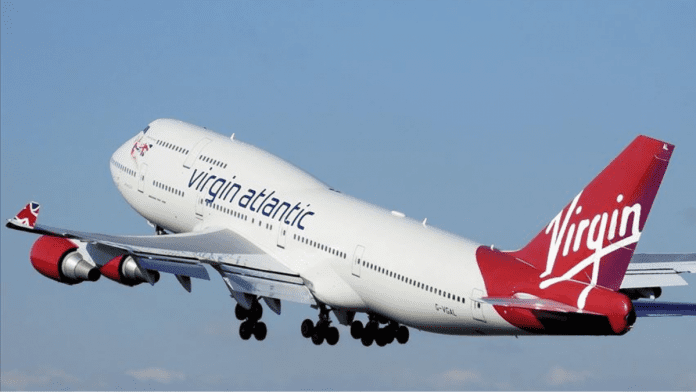News in brief:
– A historic Virgin Atlantic flight using 100% sustainable aviation fuel (SAF) successfully crossed the Atlantic from London to New York, marking a milestone in the aviation industry’s efforts to reduce environmental impact.
– The SAF, produced from a blend of waste oils and fats, including used cooking oil, agricultural waste oils, and animal fats, burns cleaner and emits significantly less carbon dioxide than traditional jet fuel.
On Tuesday, 28 November 2023, an historic flight took place as a Virgin Atlantic Boeing 787-9 Dreamliner successfully crossed the Atlantic Ocean using 100% sustainable aviation fuel (SAF).
The flight departed from London Heathrow Airport and landed at John F. Kennedy International Airport in New York, according to news coverage of the event. It marks a significant milestone in the aviation industry’s efforts to reduce its environmental impact.
The SAF used on the flight was produced from a blend of waste oils and fats, including used cooking oil, agricultural waste oils, and animal fats. This type of fuel burns cleaner and produces significantly less carbon dioxide emissions than traditional fossil-based jet fuel.
Also, it is different from the one that Garuda Indonesia used, which still required a whole lot of conventional jet fuel to work.
British Transport Minister Mark Harper, who was on board the flight, hailed the achievement as a ‘major step forward’ in the transition to a more sustainable aviation industry. He stated that the flight showed that sustainable aviation fuel is not only a future possibility, but a reality that can help to decarbonise the aviation industry and protect our planet.
Billionaire and Virgin Group founder Richard Branson, who also joined the flight, expressed his optimism about the future of SAF. He remarked that the flight is proof of the innovative spirit of the industry and the stakeholders’ unwavering commitment to sustainability. He further expressed belief that SAF has the potential to revolutionise the way planes fly and make a real difference in the fight against climate change.
The use of SAF on this transatlantic flight is also a significant step towards the European Union’s goal of reducing the aviation sector’s carbon footprint by 50% by 2050. The EU aims to have 6% of all aviation fuel come from SAF by 2030 and 70% by 2050.
The Aviation Environment Federation (AEF) initiative, however, has criticised the claim that SAF can make pollution-free flying a reality. It points out that SAF currently accounts for only around 0.1% of aviation fuel worldwide and that significantly increasing its contribution will be a challenging task.



